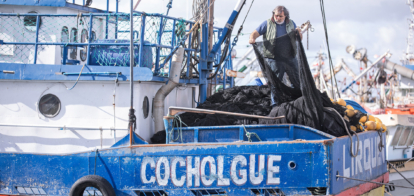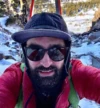Silence, Water, Hope
Protecting the ocean is what friends are for.
Editor’s note: In 2022, we launched a series profiling the people of Bureo, our partner that collects and transforms discarded fishing nets from local fishers off the coast of South America and repurposes them into NetPlus® material for our jacket shells, hat brims and the body fabric of our Baggies™ shorts. In this installment, Chilean fisherman Antonio Bustos shares his story.
Words by Antonio Bustos as told to Andrew O’Reilly
All photos by Jürgen Westermeyer
It’s one of my life’s great ironies that as a young boy I didn’t want to become a fisherman. In Tomé, Chile, where I was born and raised, everyone was either a fisherman or had a job connected to fishing. Every day, my father and the other fishermen would motor through the morning fog into the Bay of Concepción and toil all day to bring in their catch of Pacific whiting, and the whole idea of spending your life doing that just held no appeal to me.
Don’t get me wrong, I loved the sea—its beauty, its power, the adventure that lay just over the horizon—but fishing was not for me. I wanted to be a sailor and travel around the world. This was my dream, but sometimes life has other plans for you. When I was in the sixth grade, my father pulled me out of school and took me on the boat with him to work. This was in the first few years of Augusto Pinochet’s dictatorship, and Chile was very poor, so my father needed help to make ends meet and put food on the table for our family.
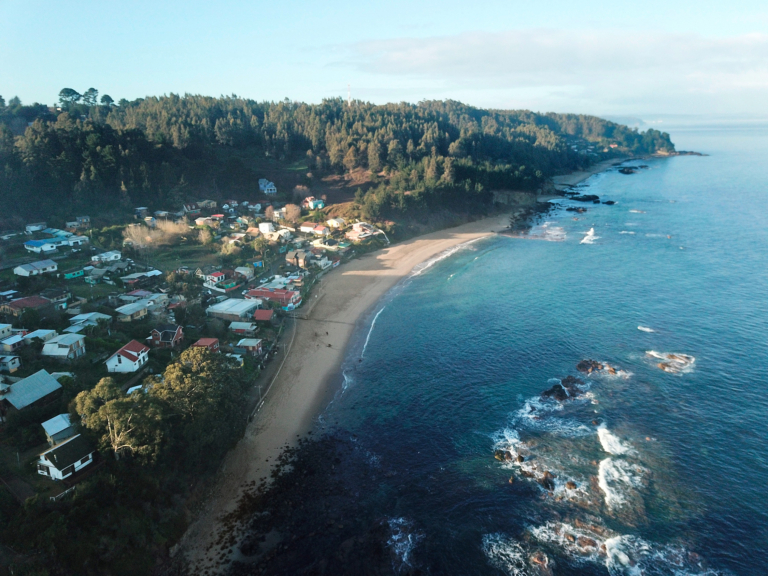
Home to generations of fishermen on Chile’s central coast, the Cocholgüe region is rich with natural resources. “We need to be the best stewards we can be for the ocean,” says Antonio, “not just for ourselves and our jobs, but for all those people who depend on our work as well as for future generations.”
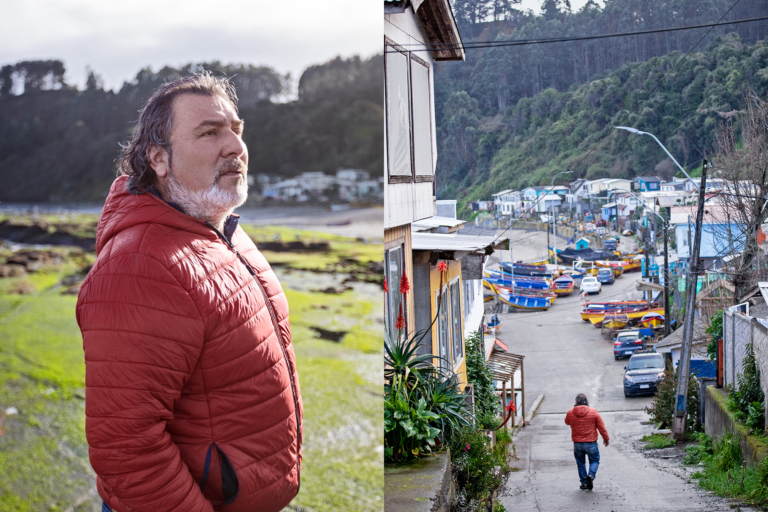
”I’ve gone from being the boy who didn’t want to fish to having spent almost 55 years of my life doing just that.” Cocholgüe Beach, Chile.
At first, I really didn’t like it—being away from friends, being forced to work long days, not going to school—but slowly, I began to see how special fishing is and the lessons the sea can teach you. My father taught me all the secrets of the sea and how to overcome my fears of uncertainty and the unknown when out on the water. There is a connection you have with nature when you’re at sea. You sail quietly with only the sounds of the wind and the gulls. The stars and moon are crisp and clear, while the sunrises and sunsets can leave you speechless. The ocean and the sky seem to go on forever. It is priceless and beautiful. And now I’ve gone from being the boy who didn’t want to fish to having spent almost 55 years of my life doing just that.
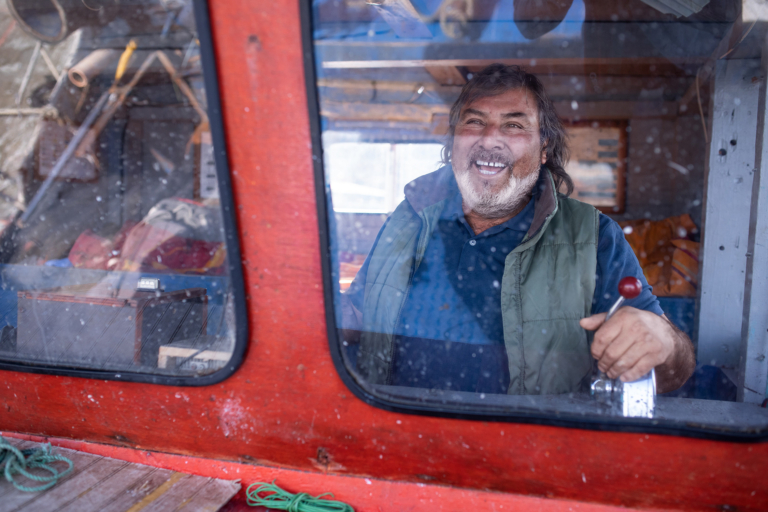
Antonio maneuvers his fishing boat out to sea.
The wonder and amazement I’ve always felt toward the sea hasn’t changed since then, but it seems like everything else in Chile has. The dictatorship has been left to the history books, and now we have been a democracy for more than 30 years. Children aren’t pulled from school to go work on fishing boats anymore, but expected to study hard and go to college to become doctors or engineers. These are all good things, but some of the changes have not been as positive.
The Chilean fishing industry has become industrialized with four companies controlling most of the market. Between these companies and the illegal fleets from places like China, artisanal fishermen are struggling to earn a living, and overfishing has gotten so bad that 70 percent of our stocks have either collapsed or are overexploited. Two of the main species of fish we catch—sardine and bream—have become so overfished that the government has had to put limits, and even a brief ban, on fishing for them. While this is OK for the big industrial fleets who can just go elsewhere, it really affects small-scale, sustainable fishers like myself.
Then there is the pollution.
I’ll admit that before I knew the harm our nets caused to the fish and the ocean, I would throw them, and our trash, overboard. But seeing the trash and dead fish and animals, and learning about how this affects not just our fishing but also the planet, overall really shocked me. We’ve tried to raise awareness by talking to the unions and big fishing companies and do our part, but I’ll be honest: We never thought about recycling our nets until the net-recycling company Bureo came along.
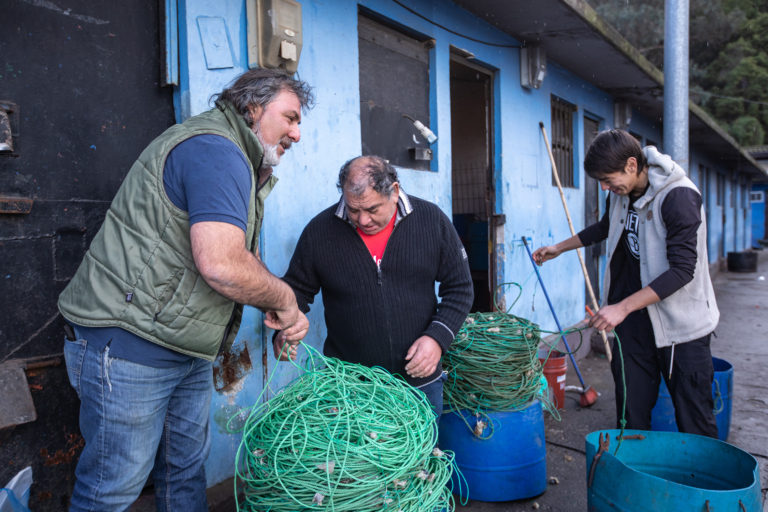
Antonio, Nestor Valenzuela and Deniro Reyes bait hooks before a summer day on the water.
This idea never crossed our minds despite working with these nets every day and seeing up close how our oceans are harmed by pollution. Being able to recycle worn-out nets is one small step toward helping the world fight this climate crisis. It won’t solve it, I know that, but every little thing we do adds up.
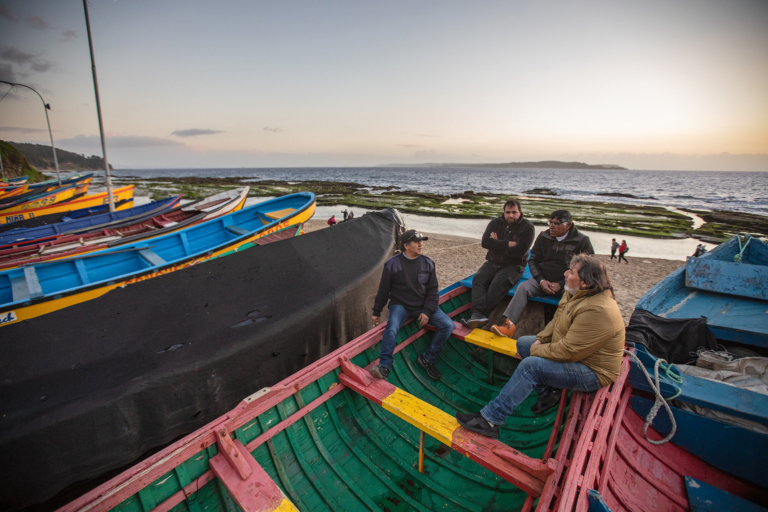
Antonio is part of an evolving conversation among fellow fishermen about how they can collectively be part of the solution to the plastics pollution problem in marine environments.
If anyone can learn something from this story, I hope it’s my fellow fishermen—not just here in Chile, but across the world. The sea provides us with our work and our sustenance, and millions of people across the globe rely on the work we do out in the ocean. We need to be the best stewards we can be for the ocean, not just for ourselves and our jobs, but for all those people who depend on our work as well as for future generations. These are positive things for sure, but I still worry what the future holds for our seas and for people like me. I don’t have a son to pass down my knowledge of fishing and the sea to like my father did. This is frustrating as I want someone to carry on the work I do and the message that we need to be the best stewards we can be for the ocean. And if we don’t take care of the ocean, it is only going to get more polluted and more fish will continue to disappear. The sea is our livelihood but it is also fragile, and everybody—fisherman or not—must work to protect it.
